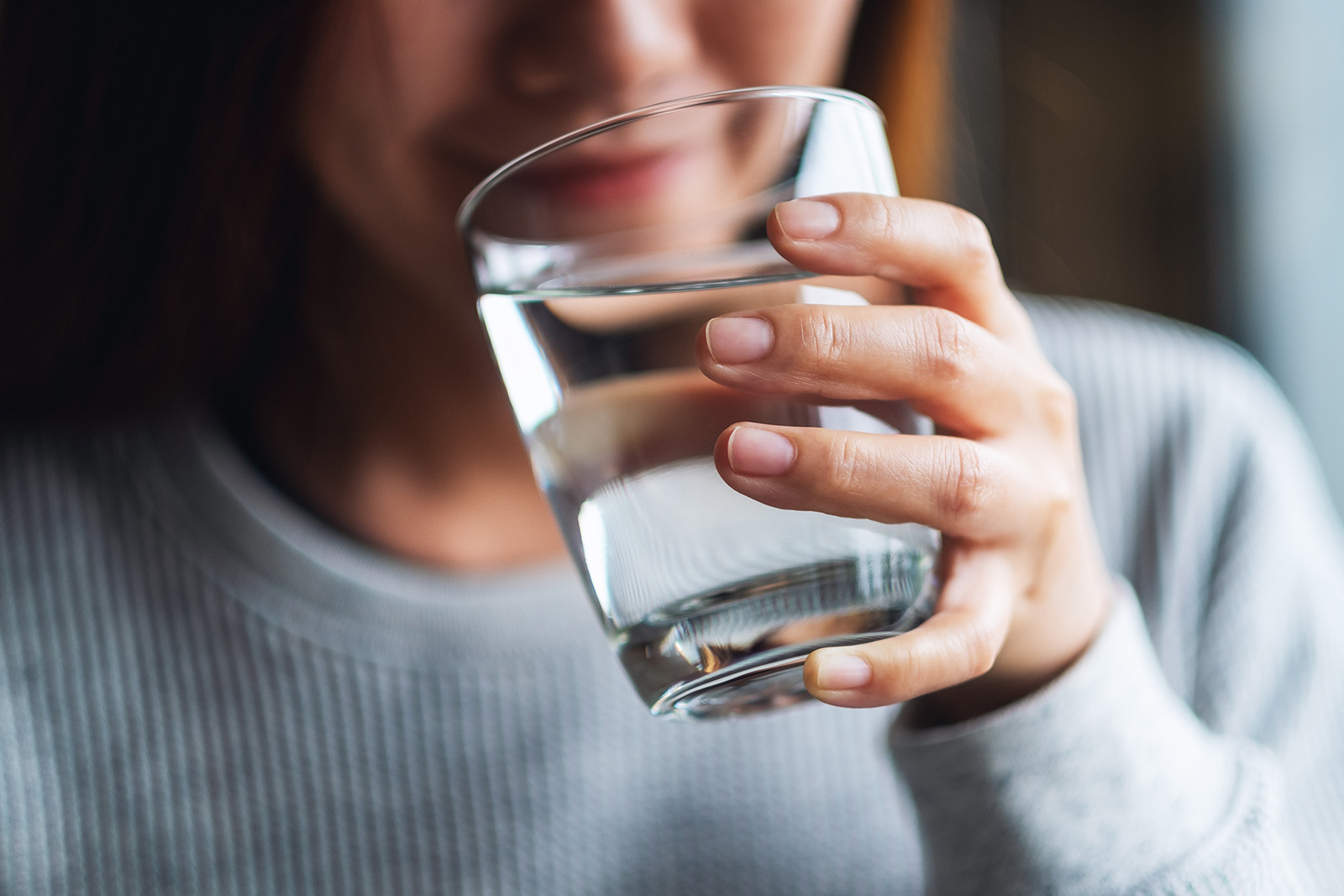Exercise Daily – In today’s fast-paced world, achieving aesthetic health and weight loss has become a significant concern for many individuals. Striving for a healthy and appealing physique not only enhances our self-confidence but also contributes to our overall well-being. We aim to provide practical tips and insights on how to achieve aesthetic health and weight loss effectively. From developing healthy habits to incorporating regular exercise and maintaining a balanced diet, we will explore various strategies to help you attain your goals.
Aesthetic health is a state of well-being in which an individual is satisfied with their physical appearance and their ability to perform physical activities. It is a holistic concept that encompasses physical, mental, and emotional health. When athletes achieve aesthetic health, they are more likely to experience the following benefits:
- Improved body composition: Athletes who have a healthy body composition are more likely to have the strength, power, and endurance they need to perform at their best.
- Reduced risk of injury: When athletes are healthy and fit, they are less likely to get injured. This is because their muscles and joints are stronger and more resilient.
- Increased energy levels: When athletes are eating a healthy diet and getting enough sleep, they have more energy to train and compete.
- Improved mental focus: When athletes are feeling good about themselves and their bodies, they are more likely to be mentally focused during training and competition.
The Importance of Setting Realistic Goals
If you are embarking on a path to attain aesthetic health or weight loss it’s important to establish achievable goals. Impossible expectations can lead to disappointment and even demotivation. Instead, you should break down your ultimate goals into smaller steps that can be accomplished in a gradual manner. If you set achievable goals you can be focused and monitor your progress efficiently.
1. Aesthetic Health
Aesthetic health goes beyond mere physical appearance and focuses on achieving a state of overall well-being. It involves taking care of one’s body, mind, and spirit to achieve a harmonious and balanced lifestyle.
Aesthetic health is a holistic concept that goes beyond mere physical beauty. It encompasses elements such as body composition, strength, flexibility, energy levels, and mental well-being. By understanding the broader scope of aesthetic health, you can develop a comprehensive approach to achieving your goals.
2. The Link Between Aesthetic Health and Weight Loss
Weight loss is often associated with aesthetic health as shedding excess pounds can lead to improved physical appearance and increased self-confidence. However, it’s important to note that aesthetic health encompasses more than just weight loss.

Setting Realistic Goals
Set achievable goals is the first step towards achieving aesthetic health in addition to weight loss. It is essential to establish specific, measurable, achievable relevant, timely, and in time (SMART) objectives. These goals serve as your guide, keeping you motivated and focused during the entire process.
1. Ideal Aesthetic
Before embarking on a journey toward aesthetic health and weight loss, it is essential to define your ideal aesthetic. This involves visualizing how you want to look and feel, taking into consideration your unique body type, age, and personal preferences.
2. Establishing Achievable Weight Loss Targets
When setting weight loss targets, it’s crucial to be realistic and avoid crash diets or extreme measures. Aim for gradual and sustainable weight loss, typically 1-2 pounds per week, by creating a calorie deficit through a combination of diet and exercise.
Establishing a Balanced Diet
A balanced diet plays a pivotal role in both aesthetic health and weight loss. Focus on consuming nutrient-dense foods such as fruits, vegetables, lean proteins, whole grains, and healthy fats. Limit your intake of processed foods, sugary beverages, and excessive sodium. Consult a nutritionist to personalize your dietary plan based on your unique needs. A balanced diet forms the foundation of aesthetic health and weight loss. Here are some key considerations:
1. Importance of a Well-Balanced Diet
The goal of achieving aesthetic health as well as weight reduction begins by feeding your body healthy, balanced diet. Make sure you eat a wide range of whole foods, such as vegetables, fruits, lean proteins, whole grains as well as healthy fats. Beware of eating too many processed foods, sugary drinks and unhealthy snacks.
2. Understanding Macronutrients and Micronutrients
Macronutrients, including carbohydrates, proteins, and fats, provide energy to the body. Opt for complex carbohydrates, lean proteins, and healthy fats while limiting processed and sugary foods. Additionally, ensure an adequate intake of essential micronutrients, such as vitamins and minerals, through a varied diet.
3. Portion Control and Mindful Eating
Practicing portion control is vital to prevent overeating. Be mindful of your hunger cues and stop eating when you feel comfortably satisfied. Slow down your eating pace, savor each bite, and pay attention to the flavors and textures of the food.
Practice portion control to avoid overeating. Be mindful of your eating habits, savor each bite, and listen to your body’s hunger and fullness cues. Avoid distractions such as screens while eating to fully enjoy and appreciate your meals.
4. Incorporating Superfoods
Superfoods are packed with nutrients and can aid in weight loss and overall well-being. Include foods like berries, leafy greens, nuts, seeds, and whole grains in your diet. These nutrient-dense options offer numerous health benefits and support your aesthetic goals.
5. Incorporating Nutrient-Rich Foods
To support your weight loss journey and promote overall health, incorporate nutrient-rich foods into your diet. These include leafy greens, berries, nuts, seeds, fish, and legumes. These foods provide essential vitamins, minerals, antioxidants, and fiber.

Regular Physical Exercise
1. Choosing the Right Exercise Routine
Engaging in regular physical exercise is crucial for aesthetic health and weight loss. Choose an exercise routine that suits your preferences and fits into your schedule. It could include activities such as jogging, swimming, cycling, strength training, or yoga.
2. Combining Cardiovascular and Strength Training
To optimize weight loss and overall fitness, combine cardiovascular exercises with strength training. Cardio exercises help burn calories and improve cardiovascular health, while strength training builds lean muscle mass, increasing metabolism and enhancing aesthetics.
3. Staying Consistent and Motivated
Consistency is key when it comes to exercise. Set realistic goals, create a workout schedule, and stay committed. Find ways to stay motivated, such as exercising with a friend, joining group classes, or tracking your progress.
Regular Exercise for Optimal Health
Engaging in regular physical activity is essential for achieving aesthetic health and weight loss. Consider the following exercise categories:
1. Cardiovascular Exercises
Cardiovascular exercises, such as running, swimming, or cycling, help burn calories and improve heart health. Aim for at least 150 minutes of moderate-intensity cardio each week to promote weight loss and enhance overall fitness.
2. Strength Training
Incorporating strength training exercises into your routine helps build lean muscle mass and increase metabolism. Include exercises targeting major muscle groups, such as squats, lunges, push-ups, and dumbbell exercises. Gradually increase weights and repetitions for progressive strength gains.
3. Flexibility and Mobility Exercises
Flexibility and mobility exercises, like yoga or Pilates, improve joint range of motion and prevent injuries. These exercises also promote relaxation and stress reduction, contributing to overall aesthetic health.
Regular exercise is essential for achieving aesthetic health and weight loss. Incorporate a combination of cardiovascular exercises, strength training, and flexibility exercises into your fitness routine. Engaging in physical activity not only aids in burning calories but also enhances muscle tone, boosts metabolism, and improves overall fitness levels.

Lifestyle Modifications
Making sustainable lifestyle modifications is crucial for long-term success. This includes adopting healthy habits such as getting adequate sleep, managing stress effectively, and avoiding unhealthy behaviors like smoking or excessive alcohol consumption. Small changes in your daily routine can make a significant difference in your overall well-being.
The Role of Sleep in Aesthetic Health and Weight Loss
Adequate sleep is often overlooked but plays a vital role in achieving aesthetic health and weight loss. Poor sleep can disrupt hormone regulation, increase cravings, and hinder your weight loss efforts. Aim for 7-9 hours of quality sleep each night to support optimal functioning of your body and mind.
1. The Link Between Sleep and Skin Health
1.1 How Sleep Affects Skin Health
Quality sleep plays a vital role in maintaining healthy, glowing skin. During sleep, the body undergoes various restorative processes, including the repair of damaged cells. Adequate sleep ensures proper blood flow and oxygenation, allowing nutrients to reach the skin cells and promote their rejuvenation.
1.2 The Impact of Sleep Deprivation on Skin
Lack of sleep can lead to a multitude of skin problems. Studies have shown that sleep deprivation increases the production of the stress hormone cortisol, which can result in inflammation and breakouts. Additionally, inadequate sleep reduces collagen production, leading to premature aging and the formation of wrinkles.
2. The Role of Sleep in Skin Rejuvenation
During deep sleep, the body releases growth hormones that promote tissue repair and regeneration. This rejuvenation process is crucial for maintaining youthful-looking skin. By ensuring sufficient sleep, you provide your skin with the necessary time to recover and renew itself, ultimately enhancing its overall health and appearance.
3. Sleep and Hair Quality
3.1 The Connection Between Sleep and Hair
Just like the skin, the health of our hair is closely intertwined with our sleep patterns. Hair follicles require proper nourishment and rest to grow strong and healthy. Sleep deprivation can disrupt this process, leading to hair loss, dullness, and breakage.
3.2 How Lack of Sleep Affects Hair
Inadequate sleep can contribute to hormonal imbalances, such as increased cortisol levels, which can negatively impact hair growth. Moreover, lack of sleep can disrupt the production of melatonin, a hormone responsible for maintaining the natural color of our hair.
3.3 The Role of Sleep in Hair Growth and Strength
During sleep, the body enters a phase of heightened cell division and growth. This applies to hair follicles as well. Sufficient sleep allows the body to produce keratin, a protein essential for hair strength and growth. By prioritizing quality sleep, you can improve the overall health and appearance of your hair.
4. Sleep and Weight Management
4.1 Sleep Deprivation and Weight Gain
Numerous studies have established a clear link between sleep deprivation and weight gain. When we don’t get enough sleep, our body’s hunger and satiety hormones, ghrelin and leptin, become imbalanced. This leads to increased cravings, overeating, and a higher likelihood of weight gain.
4.2 The Influence of Sleep on Appetite Regulation
Sleep plays a crucial role in regulating appetite. A lack of sleep disrupts the balance of hormones that control hunger and satiety, leading to an increase in appetite and a preference for high-calorie foods. Adequate sleep allows these hormones to function optimally, helping you make healthier food choices and maintain a balanced weight.
4.3 Sleep Quality and Metabolism
Quality sleep is essential for a healthy metabolism. Sleep deprivation can lower metabolic rate, making it harder for the body to burn calories efficiently. Additionally, insufficient sleep disrupts insulin sensitivity, increasing the risk of insulin resistance and metabolic disorders like diabetes.

Stress Management and Self-Care
Managing stress is crucial for maintaining aesthetic health and facilitating weight loss. Here are some strategies to incorporate into your routine:
1. Relaxation Techniques
Practice relaxation techniques such as deep breathing, meditation, or mindfulness exercises. These activities can reduce stress levels, promote emotional well-being, and prevent emotional eating.
2. Prioritizing Mental Well-being
Engage in activities that promote mental well-being, such as pursuing hobbies, spending time with loved ones, or seeking professional support if needed. A positive mindset and emotional balance are essential for achieving sustainable results.
Hydration and its Impact on Aesthetic Health
Staying hydrated is often underestimated but is critical for aesthetic health and weight loss. Aim to drink an adequate amount of water throughout the day to support digestion, metabolism, and overall cellular function. Proper hydration also helps maintain the elasticity of the skin, promoting a youthful appearance.
1. Importance of Hydration
Proper hydration is essential for aesthetic health and weight loss. Drink an adequate amount of water throughout the day to support bodily functions, promote digestion, and maintain skin health. Replace sugary beverages with water as much as possible.
2. Detoxifying the Body Naturally
Support your body’s natural detoxification processes by consuming foods that aid in detoxification, such as cruciferous vegetables, citrus fruits, and herbal teas. Avoid extreme detox diets or cleanses that can be harmful and disrupt your body’s balance.

Avoiding Fad Diets and Quick Fixes
While quick fixes and fad diets might promise rapid weight loss, they often lack sustainability and can be detrimental to your health. Instead, adopt a long-term approach focused on nourishing your body with wholesome foods and making lifestyle changes that promote overall well-being.
1. Sustainable Weight Loss Approaches
Focus on sustainable weight loss by gradually implementing dietary changes and exercise routines. Emphasize habits that can be maintained in the long run, such as incorporating more vegetables, reducing processed foods, and finding enjoyable physical activities.
Prioritizing Mental Well-being
1. Managing Stress Levels
Stress can hinder aesthetic health and weight loss progress. Practice stress management techniques like deep breathing, journaling, or engaging in hobbies you enjoy. Consider incorporating activities like yoga or meditation into your routine to promote mental well-being.
2. Practicing Mindfulness and Meditation
Mindfulness and meditation can help you develop a positive relationship with your body and mind. Take time each day to practice mindfulness, focusing on the present moment and cultivating gratitude for your body and the progress you’re making.
3. Getting Adequate Sleep
Adequate sleep is vital for overall health and weight management. Aim for 7-8 hours of quality sleep each night to allow your body to recover, regulate hormones, and optimize energy levels for your daily activities.
Seeking Professional Guidance
1. Consulting with a Registered Dietitian
If you need personalized guidance for your aesthetic health and weight loss journey, consider consulting with a registered dietitian. They can provide expert advice tailored to your specific needs and help you develop a customized nutrition plan.
2. Hiring a Certified Personal Trainer
For effective workout routines and guidance, hiring a certified personal trainer can be beneficial. They can create an exercise program that aligns with your goals, ensure proper form and technique, and provide motivation and accountability.

Embracing a Sustainable Lifestyle
1. Creating Healthy Habits
Rather than focusing solely on short-term results, strive to create sustainable lifestyle habits that promote long-term aesthetic health and weight maintenance. This includes making healthy food choices, staying active, managing stress, and getting enough rest.
2. Making Long-Term Changes
Transforming your aesthetic health and achieving sustainable weight loss requires making long-term changes to your lifestyle. Embrace the journey and view it as an ongoing commitment to your well-being rather than a temporary fix.
Conclusion
Achieving aesthetic health and weight loss requires a multifaceted approach that encompasses nutrition, exercise, lifestyle modifications, and mental well-being. By setting realistic goals, implementing a balanced diet, incorporating regular exercise, and making sustainable lifestyle changes, you can transform your overall well-being and achieve your desired aesthetic.
FAQs – How to Achieve Aesthetic Health and Weight Loss
Q1: Is it necessary to follow a strict diet to achieve aesthetic health and weight loss?
A1: While a balanced diet is essential, it is not necessary to follow a strict diet. Focus on consuming nutrient-dense foods, practice portion control, and make sustainable dietary changes that suit your lifestyle and preferences.
Q2: Can aesthetic health and weight loss be achieved without exercise?
A2: Exercise plays a crucial role in achieving aesthetic health and weight loss. It helps burn calories, improve fitness levels, enhance muscle tone, and boost metabolism. Incorporating regular physical activity is highly recommended.
Q3: How long does it take to see noticeable results in aesthetic health and weight loss?
A3: The timeframe to see noticeable results may vary from person to person. It depends on factors such as individual metabolism, starting point, and consistency in following a healthy lifestyle. Patience and perseverance are key.
Q4: What are some effective stress management techniques to incorporate?
A4: Effective stress management techniques include meditation, deep breathing exercises, yoga, engaging in hobbies, spending time in nature, and seeking support from loved ones or professionals trained in stress management.
Q5: Is it advisable to consult a healthcare professional before starting a weight loss journey?
A5: Consulting a healthcare professional before embarking on a weight loss journey is advisable, especially if you have any underlying health conditions or specific concerns. They can provide personalized guidance and ensure your approach is safe and suitable for your needs.


![How to Overcome Athlete’s Sports Performance Anxiety [Stress Management Guide]](https://exercisedaily.com/wp-content/uploads/2023/07/Untitled-design-2-1068x1068.png)

